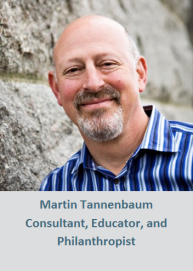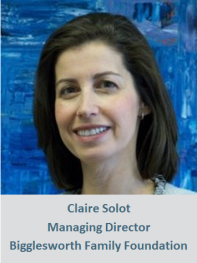You have to hack into them with a knife to avoid the marshmallow crème
And things can get a little messy

Photo credit: imgkid.com
So, I recently returned from a three-month sabbatical. Fair warning – I’d like to take the next 1,000 words to tell you why I am now a full-time sabbatical evangelist.
But first, I want you to know that my first 10 drafts of this post were sprinkled liberally with photos of my sabbatical tour of European soccer stadiums. It was like an aggressive slide show on “My Amazing Vacation.” My staff objected, and after just 9 rounds of edits I gave in. See, I really can share leadership! I hope you enjoy my 3 boastful photos and feel appropriately envious. Thank you!
Why a sabbatical?
OneJustice had doubled in size over the last 8 years and was ready to grow yet again. But our leadership structure was stuck. We were locked in a traditional model of the solo executive director overly involved in every aspect of the organization. And while I loved being part of the organization’s accelerated growth, it had also taken a personal toll.
At exactly the moment that OneJustice was preparing to take the next leap forward, armed with a new strategic vision, I was flagging – badly. I didn’t want to leave, but I was feeling tapped out. The Board and I decided we had to do something outside the box to meet both my need for rejuvenation and the organization’s need to scale.

Loyal Tottenham Hotspurs fan at White Hart Lane (North London) #COYS
How did we do it?
First, we won the nonprofit lottery. I know, you didn’t know such a thing existed, right? Well, it does. It’s called the O2 Initiatives Sabbatical Award. And it is truly a remarkable gift. The program provides funding for 3-month sabbaticals for Bay Area executive directors, plus a stipend for the leaders who provide sabbatical coverage, a professional development fund, and an organizational coach before, during, and after the sabbatical. If that’s not the lottery, then I don’t know what is.
Second, we prepared. We promoted three talented folks into newly created Director positions: Arbour Decker, Kim Irish, and Mike Winn. This new Leadership Team then worked with an insightful organizational coach from CompassPoint.
We ripped apart my job description and externalized every aspect of the position. We conducted trainings, wrote memos, created detailed plans, and had lots and lots of meetings. We formed a group meditation practice and walked across hot coals together. Actually, we didn’t do that last part. But now I wish we had, because it makes a better story. Darn. Next time.
After more than 7 months of planning and preparation, we were ready. Or, at least, we were so sick of talking about sabbatical that we just wanted it to be under way already. Which was close enough.
We also realized that you can’t prepare for everything. There will always be some unexpected situation or decision that needs to be made. You can write 25 memos about what to do if you grab the marshmallow crème, but when you end up with the rum raisin by accident, you just have to decide whether to chew or spit it out. Both decisions are valid – and it’s up to that particular leader to make his or her own call.
How we know it worked.
On a personal level, the time away was incredibly restorative. I traveled, spent time with my family, played a lot of soccer, and engaged in some great self-care. And yes, even a little yoga took place. By the end of the three months, I was itching to get back to work. Now, instead of feeling burned out, I am fired up to explore new ways to bring life-changing legal help to those in need.

In the stands at Anfield (home of Liverpool Football Club)
And the organization thrived in my absence. The Leadership Team successfully undertook programmatic expansion, revenue generation, and deepened their direct relationships with the Board. They also managed some unexpected challenges with poise and strategic responses. In fact, the entire staff didn’t just maintain the organization — they all excelled.
There were also significant benefits for the members of our Leadership Team. Kim, Mike and Arbour have all shared with me the different moments when they realized that their job during sabbatical was not to figure out what I would have done in a given situation. Instead, their job was simply to lead the organization – in their own way. That’s pretty powerful stuff.
It’s a messy process.
Our challenge now is to take all the initiative and ownership that grew in my absence and institutionalize it through shared leadership. We’re overhauling our decision-making structures, mapping power and authority in the organization, and setting up systems for mutual accountability.
We now know that creating our new leadership structure will be an ongoing process. In fact, it’s pretty messy at times, and it will surely take us a while to figure out. But already, when we hit the right chord together, it’s totally satisfying – like dark chocolate with almonds. There is so much promise in the work, that living through the messiness is clearly worth it – for me, the Leadership Team, and the entire organization.
Above all, a new sense of gratitude.
I found that as I slowed down enough to take in my whole life, just like the Grinch, my heart grew 3 sizes. From the first day of the sabbatical and through this very minute, I have been simply overwhelmed by waves of intense gratitude.

End of the soccer pilgrimage: selfie at Camp Nou in Barcelona.
I’m tremendously appreciative for the support of OneJustice Board, Advisory Board, and Strategy Council. I’m thrilled to watch Kim, Arbour and Mike’s innovative leadership. I’m deeply moved by how brilliantly and diligently our staff work. I treasure every moment I have with my family and friends, the relationships that sustain me.
I’ve realized that my life is not like any old box of chocolates. No way! My life is that ginormous box of See’s candies that arrives – unexpectedly – as a gift from your office landlord. Just when you are trying to fix the copier for that last round of fundraising letters that are going out late. (Not that I’m saying that has ever happened at OneJustice.)
And then you rip open the box and grab a chocolate, and lo-and-behold, it’s the perfect one. Your favorite. The one that makes you close your eyes, savor the experience, and smile. That’s how my life feels now. That exact blissed-out moment. That is what O2 Initiatives made possible. So yep, I’m pretty darn grateful.
In this lovely holiday season, I wish you all so much chocolate that you have to loosen your pants and lay down on the floor – and many, many moments of bliss and gratitude in the coming new year.
Yours,
Julia

Julia R. Wilson has served as OneJustice’s CEO for the last 8 years. When not working to transform the civil legal aid sector (or saving the OneJustice copier from paper jams), she is most likely watching, playing, coaching, or refereeing a soccer game. If you are interested in diving deeper into the benefits of nonprofit sabbaticals, she encourages you to read “Creative Disruption: Sabbaticals for Capacity Building and Leadership Development in the Nonprofit Sector,” by Deborah Linnell and Tim Wolfred.
avan117
californiahearings
cmcconkeyonejustice
jennafinkle
Julia R Wilson
Kelsey Williams
kimirishonejustice
Lauren Roberts
Michael Winn
miguelcas3
OneJustice Team
probonotraining
Renée Schomp
stephaniemhernandez





![[Photo: Toby Rothschild, Of Counsel to OneJustice.]](https://onejusticeblog.files.wordpress.com/2015/09/high-res_toby-rothschild.jpg?w=283&h=283)
![[Photo: Huffington Post]](https://onejusticeblog.files.wordpress.com/2015/09/o-justice-facebook-e1441744429264.jpg?w=257&h=261)
![[Photo: Legal Services Nonprofit leaders discussing trainings.]](https://onejusticeblog.files.wordpress.com/2015/09/1038-cropped.jpg?w=378&h=193)

![[PHOTO: Elizabeth Schaffer, CFO at the Global Fund for Women and Executive Fellowship faculty.]](https://onejusticeblog.files.wordpress.com/2015/08/20110720elizabethschaffer_2.jpg?w=225&h=319)
![[Photo: 2014-15 Cohort during one of their many Executive Fellowship classes, which include becoming a great communicator, human resources, financial context and ratios, and budgeting and change management.]](https://onejusticeblog.files.wordpress.com/2015/08/1466183_814970291893774_4856900012674937154_n.jpg?w=357&h=357)






 Every year, the OneJustice network gathers at our
Every year, the OneJustice network gathers at our 